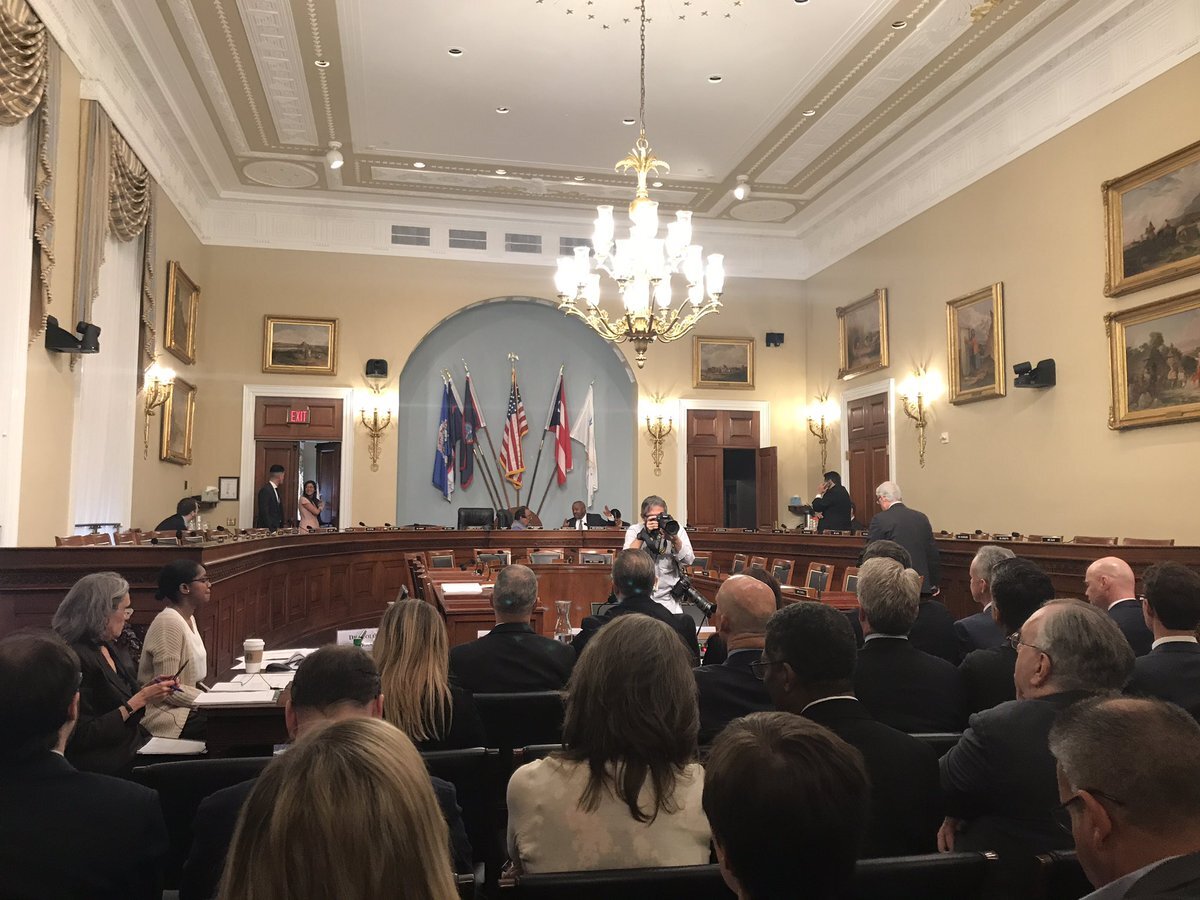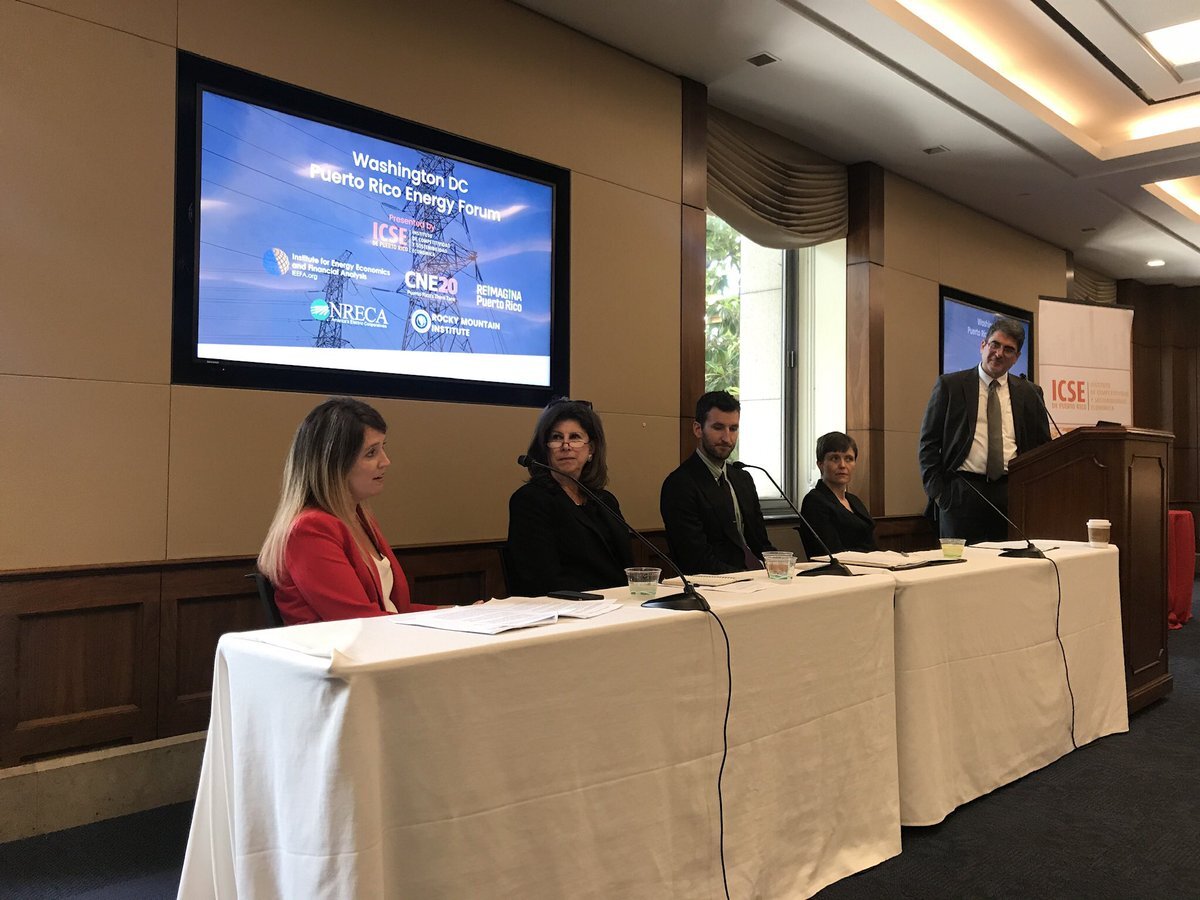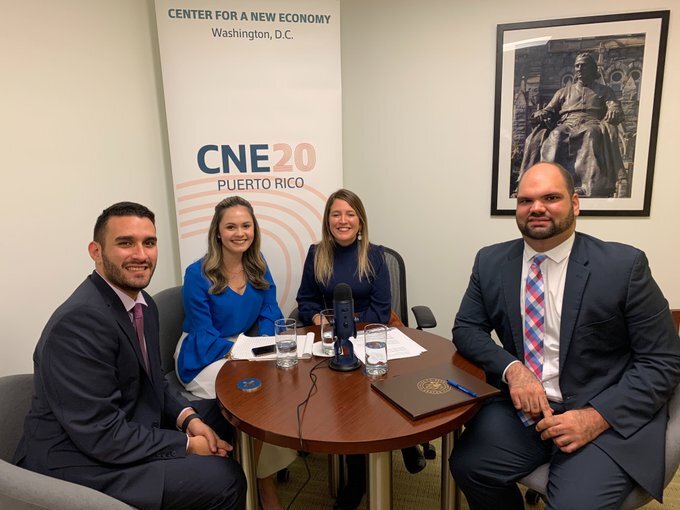Washington, D.C. Office
We cannot neglect the role Washington D.C. plays in Puerto Rico’s affairs.
In 2016 all three branches of the federal government took action related to Puerto Rico. The judicial branch, through two separate rulings issued by the U.S. Supreme Court, opined that Puerto Rico is not a sovereign territory and ultimately responds to the plenary powers of the U.S. Congress. The legislative branch authored and voted for the Puerto Rico Oversight Management and Economic Stability Act (PROMESA) allowing the island to access a comprehensive restructuring process, under the purview of a seven-member oversight board. Finally, the executive branch signed the law and subsequently appointed members to the oversight board.
It was evident this turning point underscored the need for a think tank dedicated to the island’s issues to be present in Washington D.C. and lend its voice to federal policymakers. CNE is doing just that, becoming the principal non-political voice from Puerto Rico and a resource for knowledge and information. It channels its expertise through distinguished analysis and fact-based advocacy. With its office in D.C., we expect to get the U.S. Congress, the executive branch and federal agencies to focus on the right issues and make progress for CNE’s only client: Puerto Rico.
The CNE D.C. Team
Rosanna returns to CNE after serving as the first Senior Advisor to the Secretary on Puerto Rico at the U.S. Department of Housing and Urban Development. In this role, she underscored and helped the agency address various issues impacting Puerto Rico, including language access limitations, disparate addressing standards, exclusion in critical data surveys and programs, and more. Importantly, her work fostered ongoing engagement with Puerto Rico, monitoring expenditures of billions of funding for disaster recovery, and providing a space for residents, small businesses, and community-based organizations to voice concerns.
During her first years at CNE, Rosanna effectively influenced Congress and the Executive to address Puerto Rico’s challenges, leading to substantial changes in federal law. Notably, she played a key role in the permanent authorization of a federal supplement to the local Earned Income Tax Credit, a policy studied by CNE since 2003, which promotes work and alleviates poverty. Among the other policy wins, the DC office was also successful in carrying through a generous Medicaid funding package in 2019. Her return signifies a renewed commitment to spreading deep knowledge and serious research across the federal government to help Puerto Rico thrive.
With a career dedicated to public service, Rosanna has held various roles within the federal government, including as Legislative Director for Rep. Nydia M. Velázquez, Professional Staff Member in the House Small Business Committee, Policy Advisor at the U.S. Department of the Treasury, and other roles at the U.S. Office of Management and Budget, the U.S Census Bureau, and the Office of Personnel Management.
Rosanna holds a master’s degree in International Commerce and Public Policy from George Mason University and a bachelor’s degree in Business Statistics from the University of Puerto Rico.










